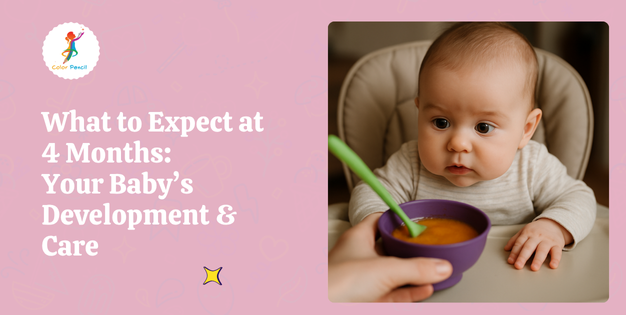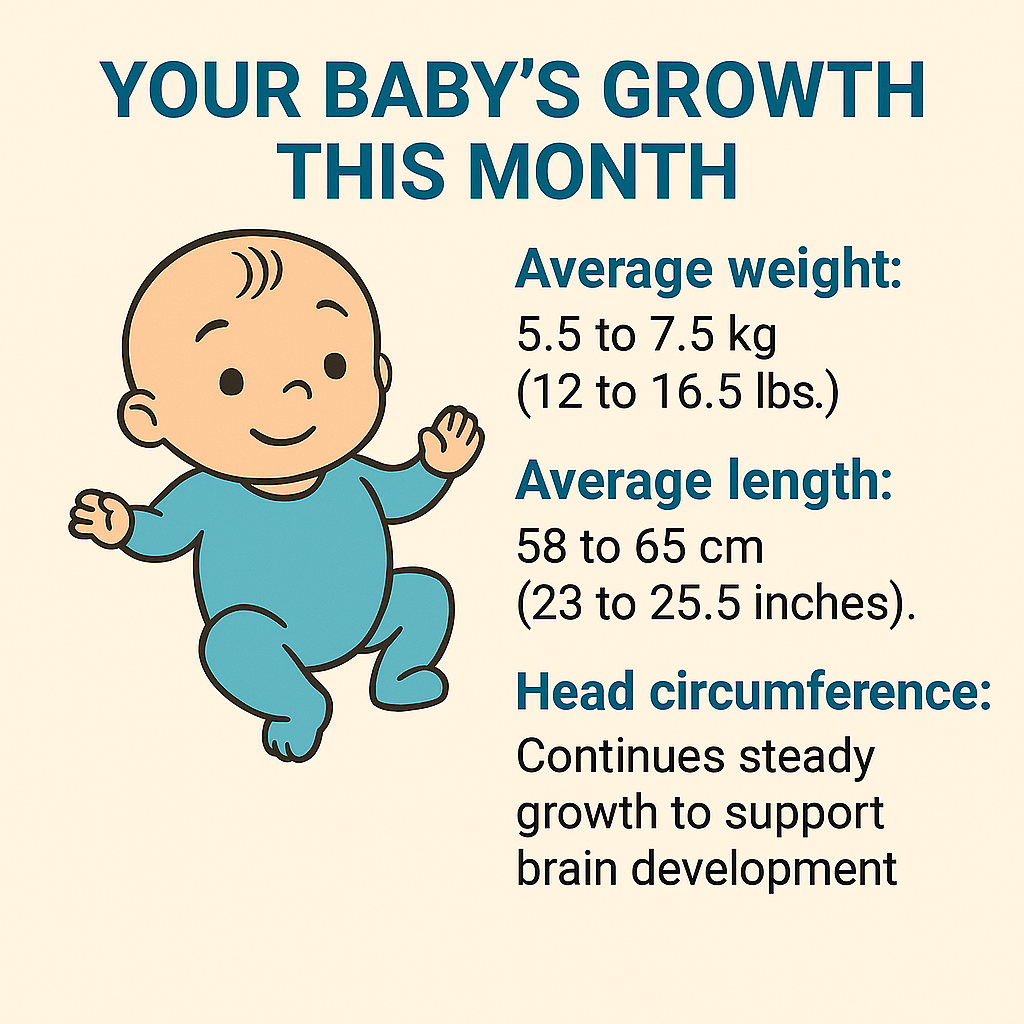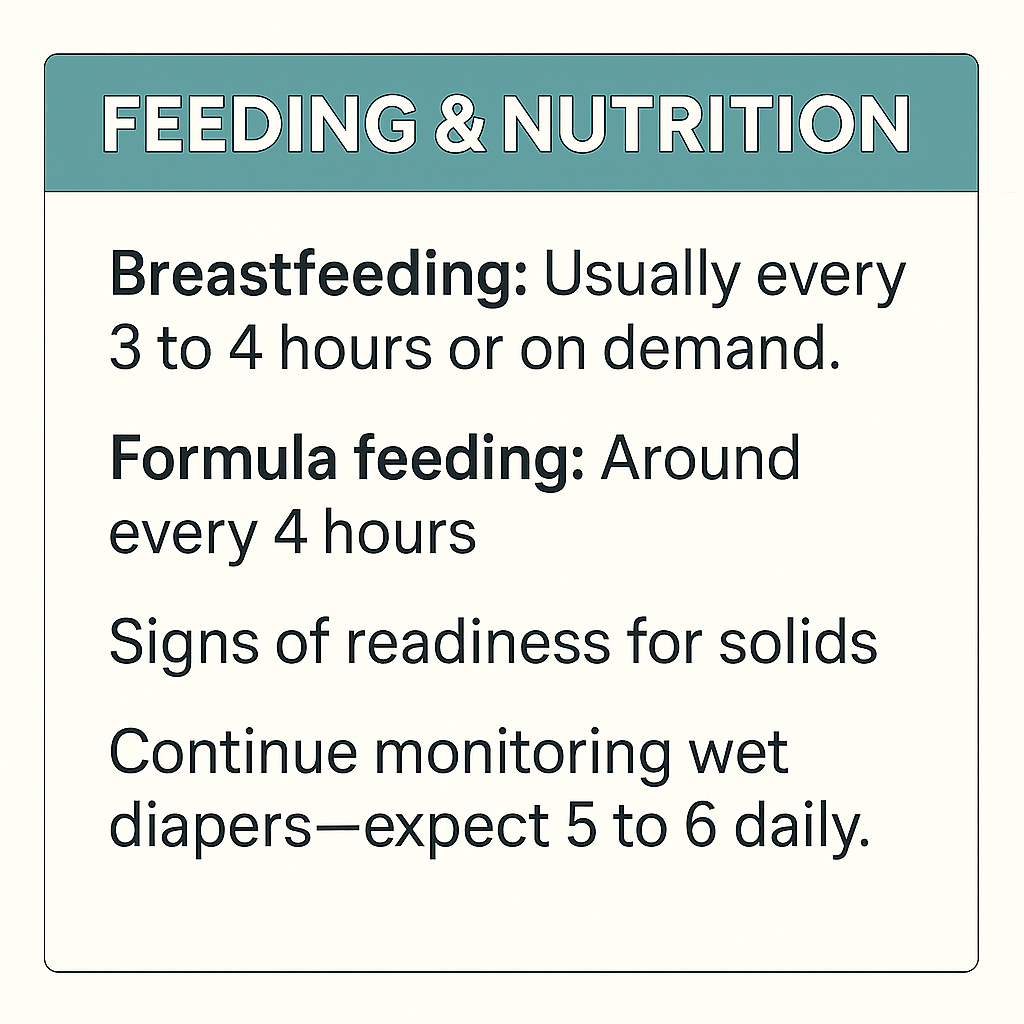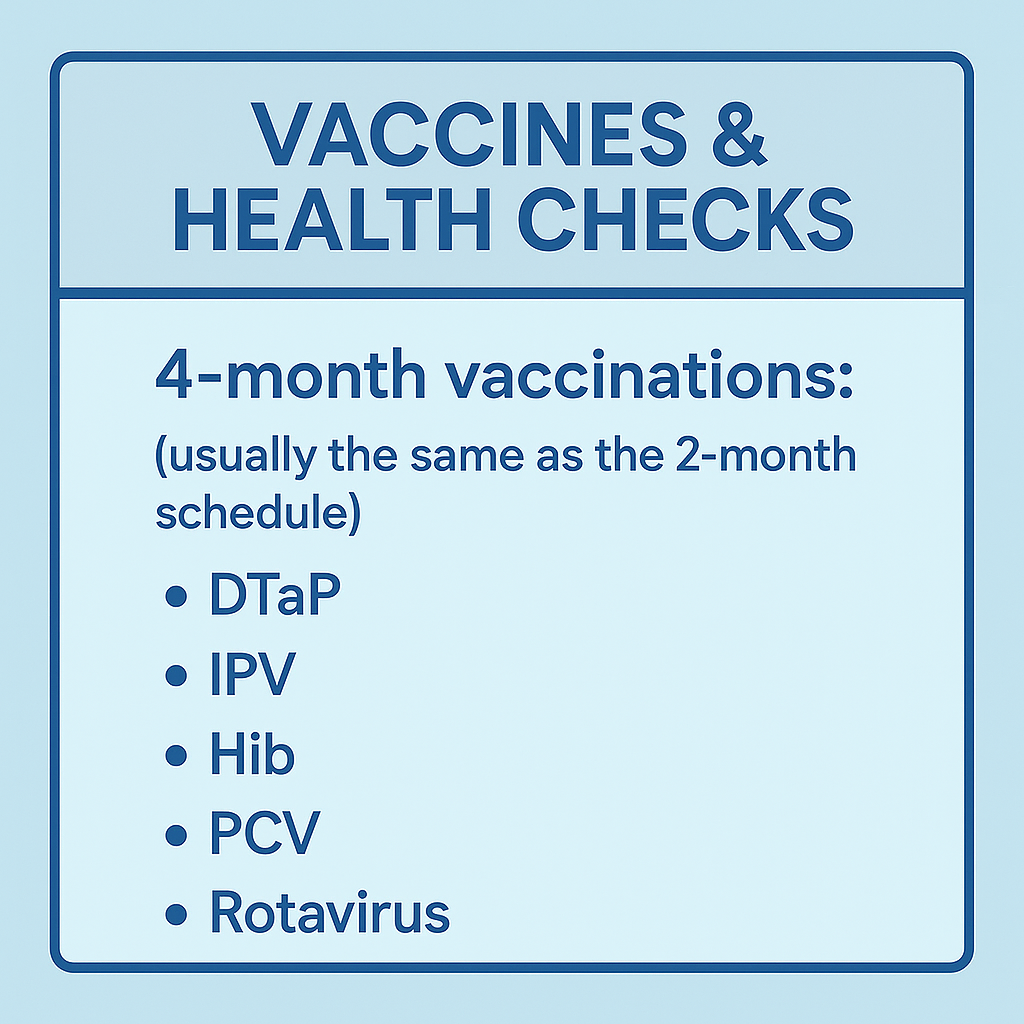Milestones, Growth, Sleep, Feeding, and Practical Tips for the Fourth Month
At 4 months, your baby is entering an exciting period of discovery and increasing mobility. You’ll notice more deliberate movements, greater social engagement, and maybe even the early stages of rolling over. Sleep patterns may shift as your baby’s brain and body develop rapidly.
Here’s what to expect during your baby’s fourth month.
🍼 Your Baby’s Growth This Month
- Average weight: 5.5 to 7.5 kg (12 to 16.5 lbs).
- Average length: 58 to 65 cm (23 to 25.5 inches).
- Head circumference: Continues steady growth to support brain development.
Note: Growth rates may vary. Your pediatrician will track and discuss your baby’s growth curve at check-ups.
👶 Developmental Milestones
Your 4-month-old may show:
- Improved head control, even while sitting supported.
- Rolling over from tummy to back (some may not yet roll; that’s normal).
- Grasping toys and bringing hands to mouth.
- Babbling begins—cooing evolves into more complex sounds.
- Increased social smiles and laughter during interactions.
- Visual tracking across wider distances.
🎯 Firsts to Watch For
- First purposeful grabbing of toys or objects.
- Rolling attempts (or successful rolls!)
- More varied vocal sounds, including consonant-like noises.
- Recognizing familiar faces and responding with excitement.
🍽 Feeding & Nutrition
- Breastfeeding: Usually every 3 to 4 hours or on demand.
- Formula feeding: Around every 4 hours.
- Signs of readiness for solids (such as good head control and showing interest in food) may start appearing, but most babies will begin solids closer to 6 months.
- Continue monitoring wet diapers—expect 5 to 6 daily.
🌙 Sleep Patterns
- Total sleep: About 12 to 16 hours per day.
- Day naps: 3 to 4 naps are common.
- Night sleep: Longer stretches, though many babies still wake at least once.
- Some babies may experience the 4-month sleep regression—a normal developmental phase marked by frequent night waking or shorter naps.
Tip: Maintain a consistent bedtime routine to support healthy sleep habits.
💉 Vaccines & Health Checks
- 4-month vaccinations (usually the same as the 2-month schedule):
- DTaP
- IPV
- Hib
- PCV
- Rotavirus
- Discuss your baby’s growth, development, and any sleep or feeding concerns with your pediatrician.
🤒 Common Health Notes
- Teething signs may become more noticeable (drooling, chewing on hands).
- Increased mouthing of objects—ensure toys are safe and clean.
- Spitting up may continue but often starts to decrease after this age.
🔔 Parental Care Reminders
- Keep offering tummy time daily to strengthen muscles for future milestones like crawling and sitting.
- Introduce soft, safe toys to encourage reaching and grasping.
- Encourage verbal development by responding to babbles and talking frequently.
- Keep prioritizing self-care—parenting during this period can be both rewarding and exhausting.
Pro Tips for Parents This Month
- Use a variety of sounds and facial expressions during play.
- Offer supervised floor time to encourage movement and exploration.
- Begin reading simple board books—even if your baby just wants to chew them for now!
Final Thoughts
At 4 months, your baby is transitioning from early infancy to a more engaged, curious phase. While daily care routines remain similar, developmental changes are becoming more noticeable and exciting. Enjoy these joyful moments as your baby’s personality continues to blossom.
Visited 98 times, 1 visit(s) today





